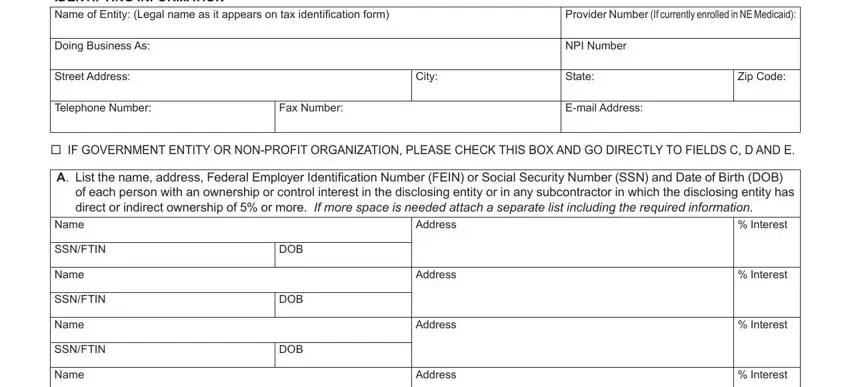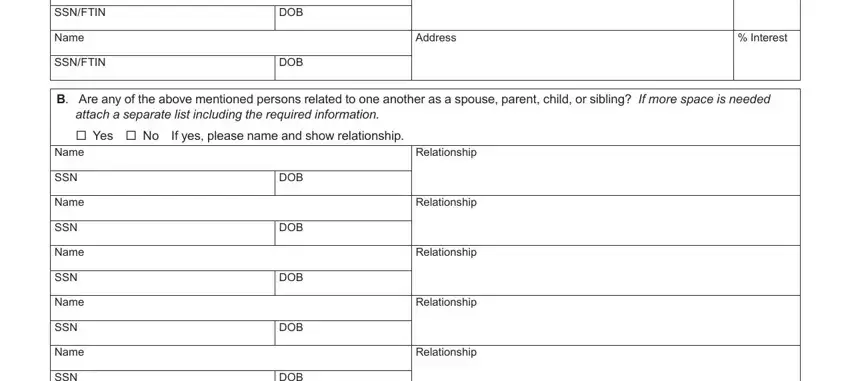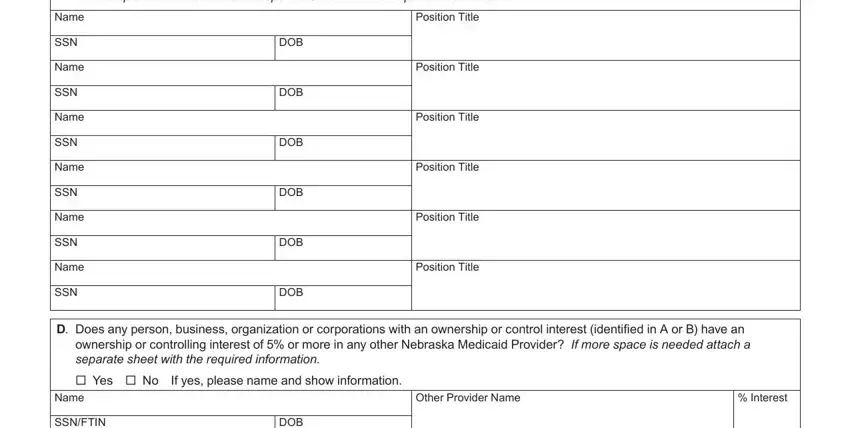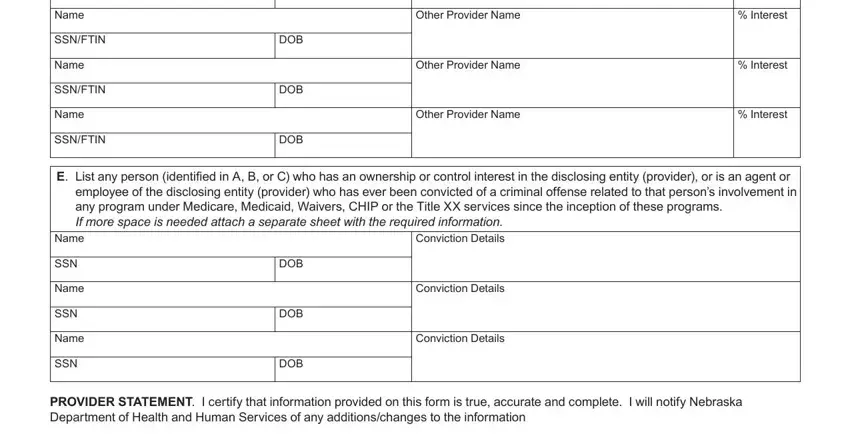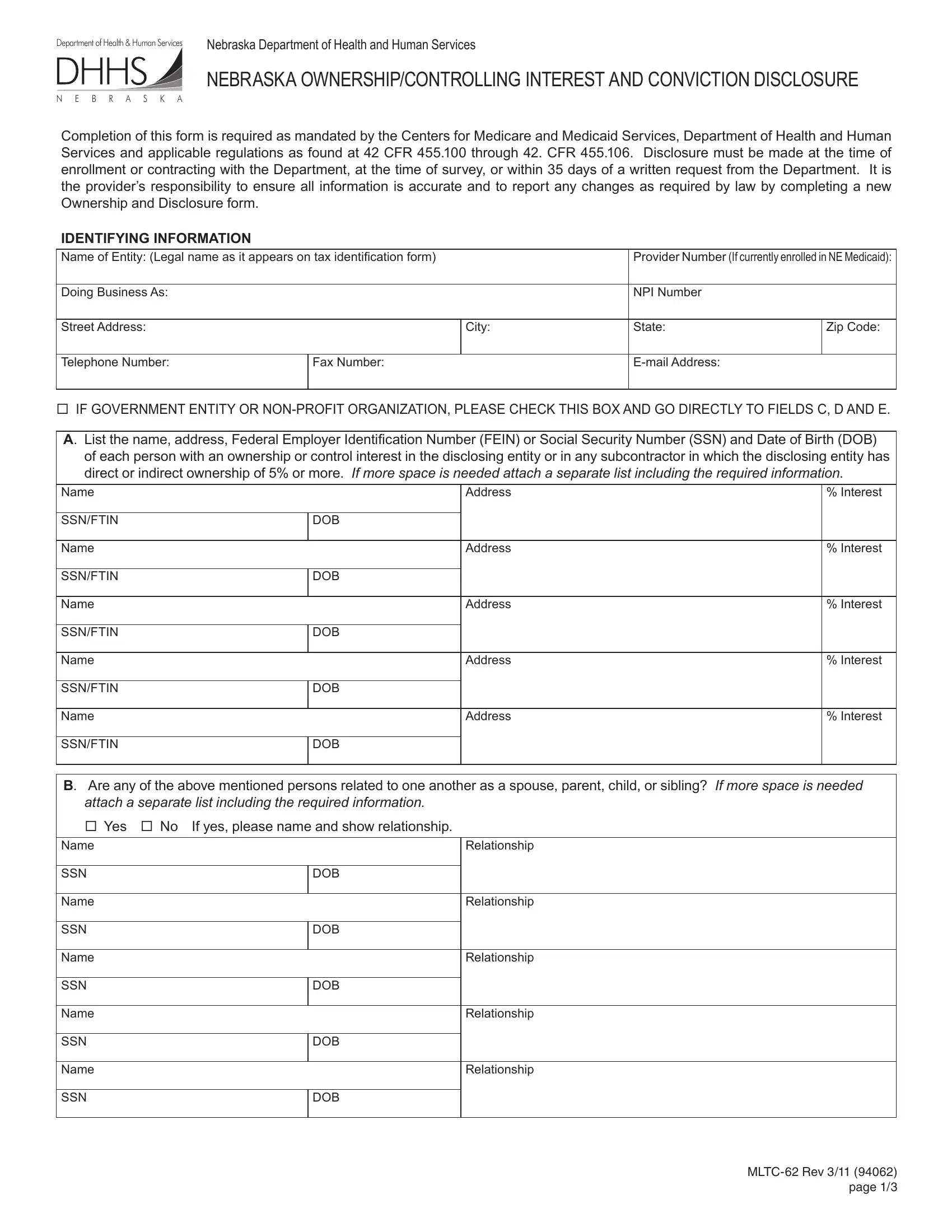42 C.F.R. Sec. 455.101 Deinitions.
Agent means any person who has been delegated the authority to obligate or act on behalf of a provider.
Disclosing entity means a Medicaid provider (other than an individual practitioner or group of practitioners), or a iscal agent.
Other disclosing entity means any other Medicaid disclosing entity and any entity that does not participate in Medicaid, but is required to disclose certain ownership and control information because of participation in any of the programs established under title V, XVIII, or
XXof the Act. This includes:
(a)Any hospital, skilled nursing facility, home health agency, independent clinical laboratory, renal disease facility, rural health clinic, or health maintenance organization that participates in Medicare (title XVIII);
(b)Any Medicare intermediary or carrier; and
(c)Any entity (other than an individual practitioner or group of practitioners) that furnishes, or arranges for the furnishing of, health-related services for which it claims payment under any plan or program established under title V or title XX of the Act.
Fiscal agent means a contractor that processes or pays vendor claims on behalf of the Medicaid agency.
Group of practitioners means two or more health care practitioners who practice their profession at a common location (whether or not they share common facilities, common supporting staff, or common equipment).
Indirect ownership interest means an ownership interest in an entity that has an ownership interest in the disclosing entity. This term includes an ownership interest in any entity that has an indirect ownership interest in the disclosing entity.
Managing employee means a general manager, business manager, administrator, director, or other individual who exercises operational or managerial control over, or who directly or indirectly conducts the day-to-day operation of an institution, organization, or agency.
Ownership interest means the possession of equity in the capital, the stock, or the proits of the disclosing entity.
Person with an ownership or control interest means a person or corporation that—
(a)Has an ownership interest totaling 5 percent or more in a disclosing entity;
(b)Has an indirect ownership interest equal to 5 percent or more in a disclosing entity;
(c)Has a combination of direct and indirect ownership interests equal to 5 percent or more in a disclosing entity;
(d)Owns an interest of 5 percent or more in any mortgage, deed of trust, note, or other obligation secured by the disclosing entity if that interest equals at least 5 percent of the value of the property or assets of the disclosing entity;
(e)Is an oficer or director of a disclosing entity that is organized as a corporation; or
(f)Is a partner in a disclosing entity that is organized as a partnership.
Signiicant business transaction means any business transaction or series of transactions that, during any one iscal year, exceed the lesser of $25,000 and 5 percent of a provider’s total operating expenses.
Subcontractor means—
(a)An individual, agency, or organization to which a disclosing entity has contracted or delegated some of its management functions or responsibilities of providing medical care to its patients; or
(b)An individual, agency, or organization with which a iscal agent has entered into a contract, agreement, purchase order, or lease (or leases of real property) to obtain space, supplies, equipment, or services provided under the Medicaid agreement.
Supplier means an individual, agency, or organization from which a provider purchases goods and services used in carrying out its responsibilities under Medicaid (e.g., a commercial laundry, a manufacturer of hospital beds, or a pharmaceutical irm).
Wholly owned supplier means a supplier whose total ownership interest is held by a provider or by a person, persons, or other entity with an ownership or control interest in a provider.
42 CFR § 455.102 Determination of ownership or control percentages.
(a)Indirect ownership interest. The amount of indirect ownership interest is determined by multiplying the percentages of ownership in each entity. For example, if A owns 10 percent of the stock in a corporation which owns 80 percent of the stock of the disclosing entity, A’s interest equates to an 8 percent indirect ownership interest in the disclosing entity and must be reported. Conversely, if B owns 80 percent of the stock of a corporation which owns 5 percent of the stock of the disclosing entity, B’s interest equates to a 4 percent indirect ownership interest in the disclosing entity and need not be reported.
(b)Person with an ownership or control interest. In order to determine percentage of ownership, mortgage, deed of trust, note, or other obligation, the percentage of interest owned in the obligation is multiplied by the percentage of the disclosing entity’s assets used to secure the obligation. For example, if A owns 10 percent of a note secured by 60 percent of the provider’s assets, A’s interest in the provider’s assets equates to 6 percent and must be reported. Conversely, if B owns 40 percent of a note secured by 10 percent of the provider’s assets, B’s interest in the provider’s assets equates to 4 percent and need not be reported.
